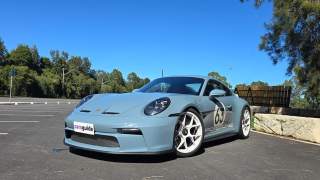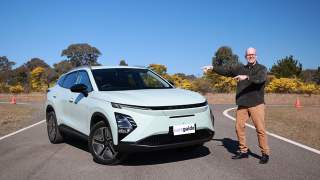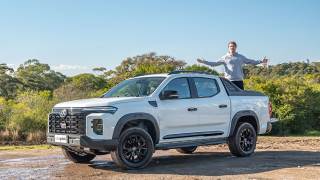
Australian government pledges $15 million to EV charging network
- Tesla Model S
- Nissan LEAF
- Hyundai Kona
- Jaguar I-Pace
- Renault Zoe
- Hyundai Ioniq
- Audi E-tron
- Tesla MODEL 3
- BMW i Series
- Mercedes-Benz EQ-Class
- BMW I3
- Mercedes-Benz EQC
- Renault ZOE 2019
- Hyundai Kona 2019
- Audi E-tron 2019
- Jaguar I-Pace 2019
- Tesla Model 3 2019
- Hyundai IONIQ 2019
- Tesla Model S 2019
- Nissan Leaf 2019
- BMW i Series 2019
- Mercedes-Benz EQ-Class 2019
- BMW I3 2019
- Mercedes-Benz EQC 2019
- Audi News
- BMW News
- Hyundai News
- Jaguar News
- Mercedes-Benz News
- Nissan News
- Renault News
- Tesla News
- Electric Cars
- Audi
- BMW
- Hyundai
- Jaguar
- Mercedes-Benz
- Nissan
- Renault
- Tesla
- Electric Cars
- Green Cars
- Industry news
- Technology
- Urban
- Urban News

The federal government will contribute $15 million to build a network of fast-charging stations that will connect Adelaide to Brisbane, the largest commitment yet for a national electric vehicle (EV) charging infrastructure.
Overall, the proposed network will cost $50 million and be built by Evie, with each two-charger station about 150 kilometres apart to address ongoing electric vehicle (EV) range anxiety.
Using Brisbane-based Tritium’s 350kW ultra-fast chargers, Evie’s network will be able to add 100 kilometres of range to existing EVs in around 15 minutes.
Primarily situated along highways, the first charging station will break ground in Brisbane, with 42 nodes planned along Australia’s east coast to connect Queensland’s capital with Sydney, Canberra, Melbourne and Adelaide.
Extra stations will also be built in far-north Queensland, Tasmania and Perth.
Announcing the $15 million investment, federal government energy minister Angus Taylor said the government is “taking practical action to address barrier to EV uptake, so that Australians who choose to adopt new technologies are supported in doing so”.
The Morrison Liberal government famously criticised the Labor party’s proposed EV roadmap prior to the election earlier this year, which targeted half of all new cars sold by 2030 to be in electrified powertrains.
Meanwhile, Evie boss Chris Mills said the new recharging network will boost EV viability in the country.
“We have estimated that Australia needs around 350 sites to cover all the highways that make up Australia’s national land transportation network,” he said.
“While many consumers will charge at home, they will need plenty of fast chargers in towns, suburbs and cities. There are currently around 6500 petrol stations. This is just the beginning of the infrastructure build out.”
Though EV uptake in Australia remains low, emissions-free models have expanded in recent years with the introduction of the Hyundai Ioniq Electric, second-generation Nissan Leaf, Renault Zoe light hatchback, Hyundai Kona Electric SUV and Tesla Model 3 small car.
In the premium end of the market, customers have options such as the Jaguar I-Pace, BMW i3 and Tesla Model S, while Audi’s e-tron and the Mercedes-Benz EQC are due to launch in the next 12 months.










Comments